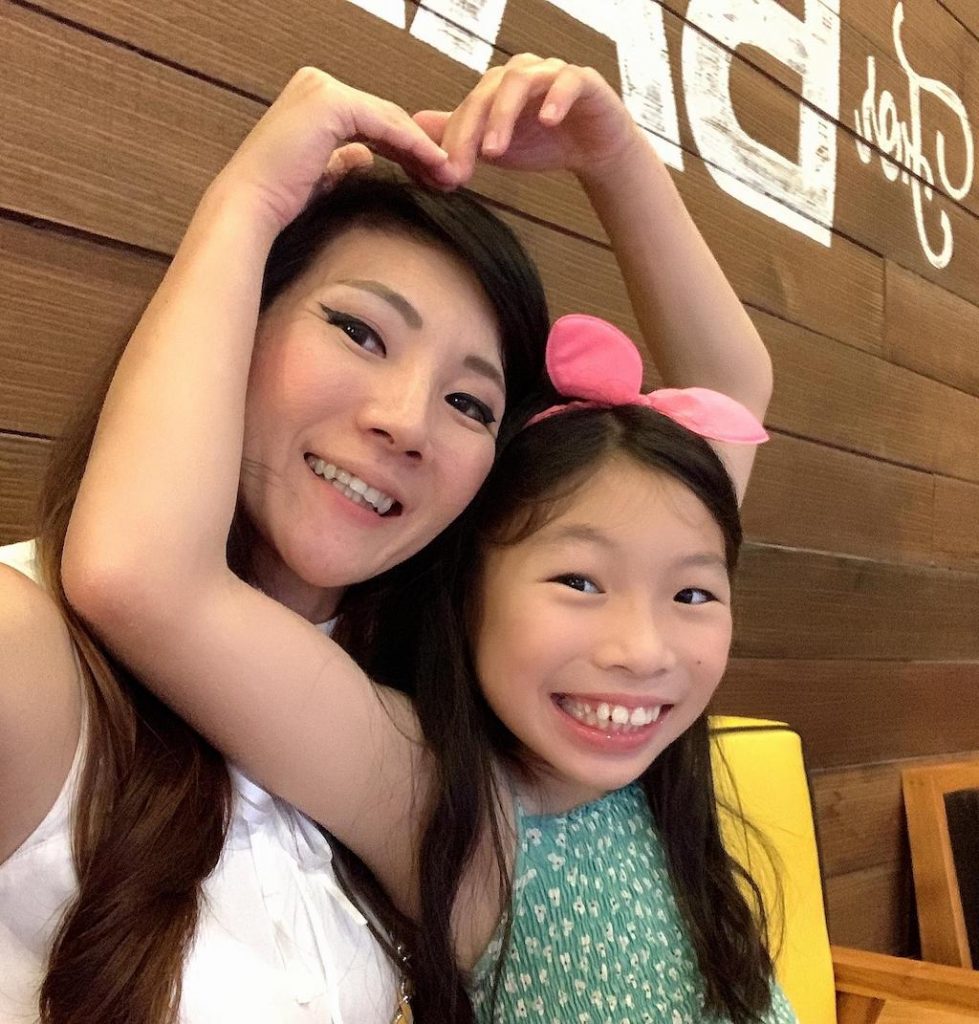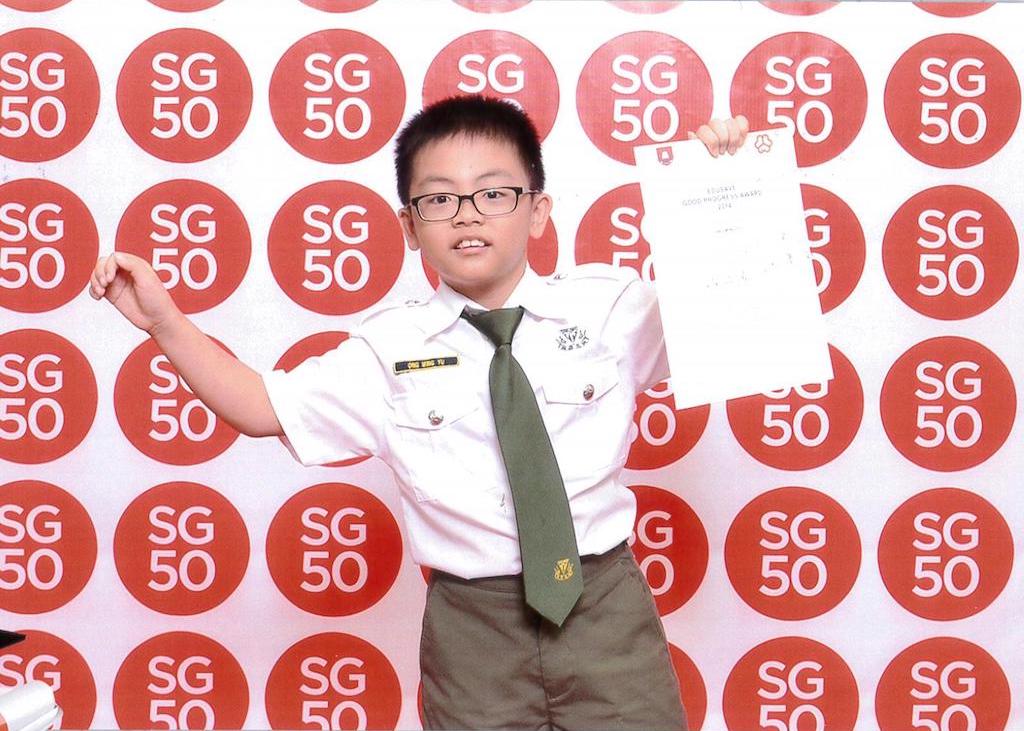SingaporeMotherhood | Preschooler & Up
October 2020
“There is no norm to follow” says this mum about the GEP (Gifted Education Programme)

Eight to nine-year-olds in Singapore undergo their first education milestone when they wear a sorting hat called the GEP screening in Primary 3. The letters stand for the Gifted Education Programme which, according to MOE’s website, caters for “intellectually gifted” youngsters. Next week, Primary 3 students who made it though the first round (held in August) of GEP Screening will be taking the Selection test to determine whether they will make it into the coveted programme.
My daughter Rachel sat for it last year, and passed the first (screening) round. Her classmate who also passed the first round was promptly given monetary rewards by her parents. Unfortunately, this friend did not pass the selection (second) round, or she would have been doubly rewarded! Why do parents yearn for their offspring to be in the GEP?
Anyone can go to The Ministry of Education’s website for detailed information on the programme. What we’ve done is ask parents whose children are currently in the GEP, and who have graduated from it, to give us the inside story. Here’s what they say.
(See also: How to Support your Gifted Child in Singapore)
Lynn Tan, 42, is a freelance motoring and design writer. Her daughter Eryn is in the GEP stream in Primary 4

“We did not send Eryn for any GEP preparation programmes. Prepping for the GEP selection test defeats the whole purpose of what the programme is about. Prepping may get you into the programme, but it will be a struggle for the child for the next three years.
I am not ashamed to admit that we place a strong emphasis on achieving excellent grades, and we reward Eryn for good results. But we did not dish out any reward for making it to GEP, because we didn’t consider the GEP selection test as something that she had to ace.
Eryn was excelling in the mainstream and we would have been happy for her to continue her journey in the mainstream and in the same school. This was one of our major considerations when deliberating whether to accept the GEP offer. She had been doing very well in the mainstream, so we were somewhat reluctant to rock the boat. We weren’t sure how she would do in a new programme in a new school.
Things to consider
Changing schools was probably Eryn’s biggest reservation. Upon receiving the selection notification from MOE (Ministry of Education), her response was a flat: “No, I don’t want to change school.”
My husband and I went through the materials, spoke with friends who had/have kids in the GEP, and read forums and articles. we felt that the programme would benefit her, not just over the next three years, but in the long run as well.
So we sat down with her and read through the booklet issued by MOE, which explained what the programme was about, what they would be learning, and so on. That was when she first showed interest and became less adamant about changing schools.
We told her that we would not force her, and that the final decision lay with her. But we asked her to keep an open mind, attend the briefing session, evaluate the programme based on its merits, and not just because of whether she wanted to change schools or not, then make an informed decision.
Eryn’s turning point
The briefing session was very insightful. Parents and kids attend separate sessions, and the kids did some hands-on activities in the classroom. That was the turning point. After the briefing, Eryn told us that yes, she would like to take it up.
It helped that her best friend from her previous school was also selected. They ended up in the same school, and the same class. In addition, majority of those selected for GEP from her previous school went to the same new school. I think this helped with the initial transition. Eryn also made new friends within the GEP cohort. The mixed form classes also create the opportunity for interaction with mainstream kids, which is awesome.
(See also: Preparing your Child for DSA? Here’s what you Need to Know)

Learning new things
Curriculum-wise, Eryn feels more engaged and stimulated in class. On the journey to school, she would comment, “I wonder what are we going to learn/do today?” I think this shows that she is excited about what they get to learn in GEP.
Eryn is inquisitive by nature, so the programme suits her because they learn things in greater depth and breadth. The Science topic on Matter, for example, goes beyond the textbook. They also have to do their own research. For English, they do not simply learn new vocabulary. They also do research on the etymology of words as well.
The workload has been manageable so far. I think they try to ease the students into the system so the homework is not crazy, although she tells me that they do a lot more in class compared to before. So she comes home rather tired on some days, but she doesn’t complain as long as she is doing stuff that engages her.
Adapting to the GEP programme
Eryn doesn’t have any tuition or enrichment apart from Higher Chinese, so I have been supervising her daily work and helping her revise for test and exams. I had nailed the formula for mainstream, so moving to GEP threw me off a little. I had to get a feel for the new system and curriculum and how to navigate it.
The hardest part is that the resources for GEP (i.e. assessment books, etc.) are limited, so we have to rely on the school a lot more. It also worries me that at the end of the three years, the GEP students will be sitting for the same PSLE (Primary School Leaving Examination) papers as their mainstream peers. This is something that I have to be mindful of.”
Ng Li Soon, 47, is a chartered accountant. Her son, Ming Yu, 16, graduated from the GEP programme four years ago

“When Ming Yu received the invitation letter to join the GEP, we were surprised, and very hesitant to enrol him. He was shy and reserved by nature, kept very much to himself, and barely had any friends.
In addition, he was born on 1 January. Hence he was always the youngest child in the cohort, and more often than not, the shortest and the smallest in class. This did not help much in boosting his confidence.
Making the decision
His school performance in his first three years in a neighbourhood primary school was average. He was never in the top 10 in his class. In fact, he was always a medium performer. He never attended any tuition class (except for three months of Chinese Language in Primary 4 when we thought that he was going to fail the subject!).
Our assessment then was that it would be very pressurising for him to cope in an environment which comprised the cream of the cohort.
We were going to give up the offer, but after second thoughts, that my child one day would come back to us and blame us for robbing him of an opportunity to be in a special programme, we decided to enrol him. Our consolation was that if he really could not cope, we would transfer him out later.
No norm to follow
To us, it was not easy for him. His weekends and school holidays were mostly spent trying to complete homework. There was little play time. But whether it was a norm for all primary school kids or because my child was a slow worker, we could not tell.
The GEP program definitely has expanded scope and breadth. Other than for Second Language and Social Studies, there are no textbooks. Learning is more in the form of exploration, excursions, and discovering for yourselves. Often, homework is in the form of projects, puzzles, and quizzes that even us parents had difficulty solving!

There is no norm to follow. The curriculum seems more suited for secondary school students rather than primary school kids. The children write poetry and short stories. They also learn concepts that are usually covered at secondary school level.
We could only hope for the best. If the child is unable to cope, there are only a couple of tuition centres that can cater to this group of kids. These, in my personal opinion, are too expensive.
And of course, we worried about how he was going to pass his PSLE when the learning scope was so different from the rest of the cohort as ultimately, all the children would be taking the same PSLE.
Looking back, taking stock
Now, seven years down the road, my child has grown to be a big boy. He definitely has a mind of his own. I would say that in hindsight, all the worries were unfounded.
Somehow, he passed his PSLE with flying colours, and was able to continue his secondary education in a similar environment, where there were no textbooks and no boundaries. The endless homework and school activities continue, but I would say this has become the norm.
The pressure is there and always will be there, but as we often tell our child, as long as he has tried his best, it is enough. There is no need to compare with anyone but yourself.
To parents who have the same dilemma, I would say, do not rob your child of this opportunity. Yes, it may be a tough road ahead, but the programme will open up a lot of learning opportunities for your child that he otherwise may not have.
Let the child be, and the child will blossom in their own way. I asked Ming Yu if he would still choose to go through the GEP, knowing now what it is like. His answer was a resounding yes. In his words, it is ‘very enriching!’.”
All content from this article, including images, cannot be reproduced without credits or written permission from SingaporeMotherhood.
Follow us on Facebook, Instagram, and Telegram for the latest article and promotion updates.




